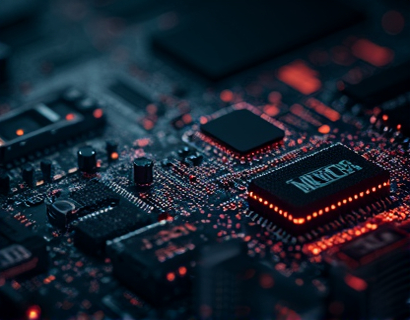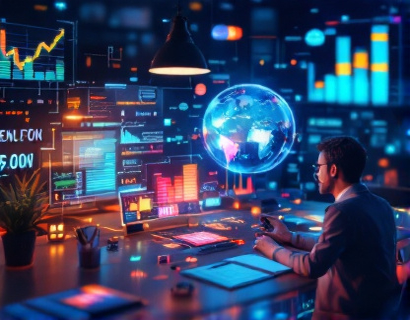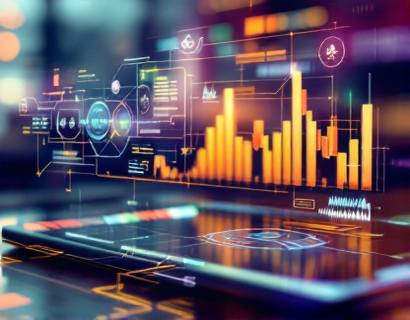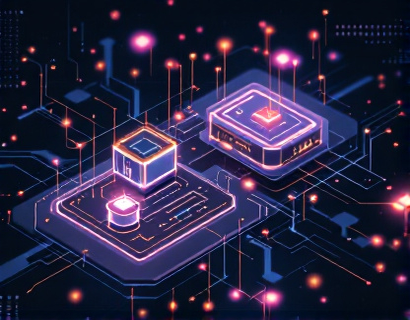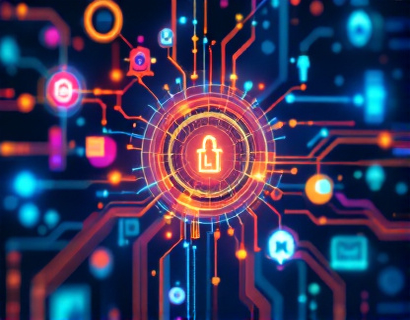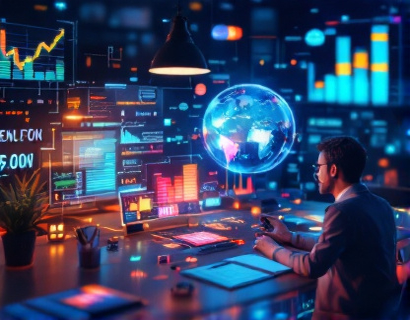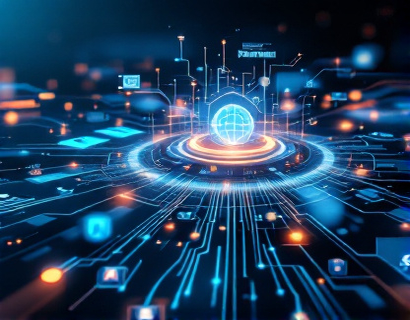Unleashing Next-Gen Productivity with Advanced Digital Solutions: The Synergy of Crypto and AI
The intersection of cryptocurrency and artificial intelligence (AI) is giving rise to a new era of digital productivity tools and applications. This synergy is not just about combining two revolutionary technologies but about creating a powerful ecosystem that enhances efficiency, security, and innovation. For tech professionals and enthusiasts, understanding how these technologies work together can unlock new possibilities for productivity and engagement in the digital landscape.
The integration of blockchain technology with AI is paving the way for more secure, transparent, and efficient digital solutions. Blockchain's inherent properties such as decentralization, immutability, and transparency complement AI's capabilities in data processing, pattern recognition, and predictive analytics. This combination is leading to the development of advanced tools that can transform various industries, from finance and healthcare to supply chain and beyond.
Enhancing Security with Crypto and AI
One of the most significant benefits of combining crypto and AI is the enhancement of security measures. Traditional security systems often rely on centralized databases, making them vulnerable to cyber attacks. By leveraging blockchain, these systems can be decentralized, reducing the risk of single points of failure. AI, with its advanced algorithms, can monitor and analyze vast amounts of data in real-time, detecting anomalies and potential threats more effectively than human operators.
For instance, AI-driven security solutions can use machine learning to identify patterns indicative of fraudulent activities or unauthorized access attempts. These systems can adapt and learn from new data, continuously improving their detection capabilities. When integrated with blockchain, such systems ensure that the data used for analysis is tamper-proof and transparent, adding an extra layer of security.
Optimizing Data Management with AI and Blockchain
Data management is another area where the combination of AI and blockchain shines. Managing and analyzing large datasets is a challenge for many organizations due to the sheer volume and complexity of the data. AI can process and analyze these datasets at speeds and scales impossible for humans, providing valuable insights and actionable intelligence.
Blockchain technology ensures that the data is stored securely and remains immutable, preventing any unauthorized alterations. Smart contracts, self-executing contracts with the terms directly written into code, can automate data management processes, ensuring that data is accessed and used according to predefined rules. This not only streamlines operations but also builds trust among stakeholders, as the integrity of the data is maintained.
Improving Supply Chain Efficiency
The supply chain industry stands to gain significantly from the integration of AI and blockchain. Traditional supply chains are often plagued by inefficiencies, lack of transparency, and high costs. By using blockchain to create a decentralized and immutable ledger of transactions, every step in the supply chain can be tracked in real-time. This transparency helps in identifying bottlenecks, reducing delays, and ensuring compliance with regulations.
AI can further optimize these processes by predicting demand, optimizing inventory levels, and automating logistics. For example, AI algorithms can analyze historical data and market trends to forecast demand accurately, allowing businesses to adjust their inventory and production schedules accordingly. This reduces waste and ensures that products are available when and where they are needed.
Enhancing Financial Services with DeFi and AI
In the financial sector, the combination of decentralized finance (DeFi) and AI is revolutionizing how financial services are delivered. DeFi platforms leverage blockchain to create open, permissionless financial systems that offer a range of services such as lending, borrowing, and trading without intermediaries. AI can enhance these platforms by providing sophisticated risk assessment tools, personalized financial advice, and automated trading strategies.
AI-driven algorithms can analyze vast amounts of financial data to identify trends and patterns, helping users make informed decisions. For instance, AI can predict market movements, assess creditworthiness, and detect fraudulent activities with high accuracy. This not only improves the efficiency of financial services but also makes them more accessible to a broader audience.
Transforming Healthcare with AI and Blockchain
The healthcare industry is another sector that can benefit immensely from the synergy of AI and blockchain. Patient data management, medical research, and healthcare delivery can all be improved through these technologies. Blockchain ensures that patient data is securely stored and shared among authorized parties, maintaining privacy and compliance with regulations such as HIPAA.
AI can analyze medical data to identify patterns and predict disease outcomes, aiding in early diagnosis and personalized treatment plans. For example, machine learning models can analyze imaging data to detect early signs of diseases like cancer or Alzheimer's, enabling timely intervention. Additionally, AI can optimize hospital operations by predicting patient flow, managing resources, and reducing wait times.
Boosting Productivity with AI-Powered Collaboration Tools
In the realm of productivity tools, the combination of AI and blockchain is giving birth to innovative collaboration platforms. These platforms use AI to enhance communication, streamline workflows, and ensure secure data sharing. Blockchain ensures that all interactions and data exchanges are transparent and tamper-proof, building trust among team members.
AI-powered chatbots and virtual assistants can handle routine tasks, freeing up time for more critical work. These assistants can schedule meetings, manage emails, and provide real-time updates on project statuses. Blockchain-based reputation systems can also be integrated to reward contributors based on their performance and reliability, fostering a more motivated and productive team environment.
Future-Proofing with Continuous Innovation
As the technologies of AI and blockchain continue to evolve, the potential for new applications and improvements in productivity is vast. The development of more efficient consensus mechanisms, advancements in quantum computing, and the creation of interoperable blockchain networks are just a few areas that hold promise. These advancements will further enhance the capabilities of AI, making digital solutions even more powerful and versatile.
For tech professionals and enthusiasts, staying updated with the latest research and developments in these fields is crucial. Engaging with communities, attending conferences, and participating in hackathons can provide valuable insights and networking opportunities. By embracing these technologies, individuals can not only enhance their own productivity but also contribute to the broader ecosystem of innovation.
In conclusion, the integration of cryptocurrency and AI is opening new frontiers in digital productivity. From enhancing security and optimizing data management to transforming industries like finance, healthcare, and supply chain, the possibilities are endless. By leveraging these advanced digital solutions, organizations and individuals can achieve higher levels of efficiency, innovation, and success in the rapidly evolving digital landscape.




